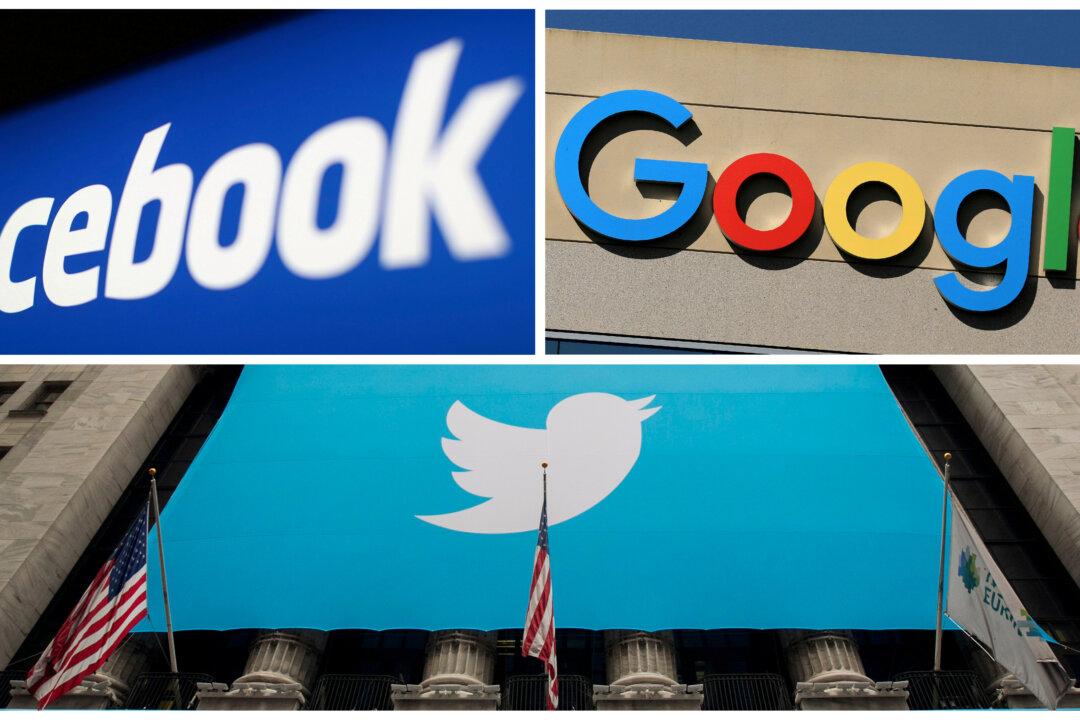Executives from Facebook, Google, and Twitter told a Senate committee on Wednesday that stripping tech firms of Section 230 protections would stifle free speech on the internet and called for alternate regulatory solutions.
Speaking remotely before the Senate Committee on Commerce, Science and Transportation, Twitter CEO Jack Dorsey proposed such measures as requiring tech companies to publish their content moderation policies and a “straightforward process” to appeal moderation decisions, rather than repealing Section 230 of the Communications Decency Act, which shields tech companies from liability for content posted on their platforms while letting them moderate it.





